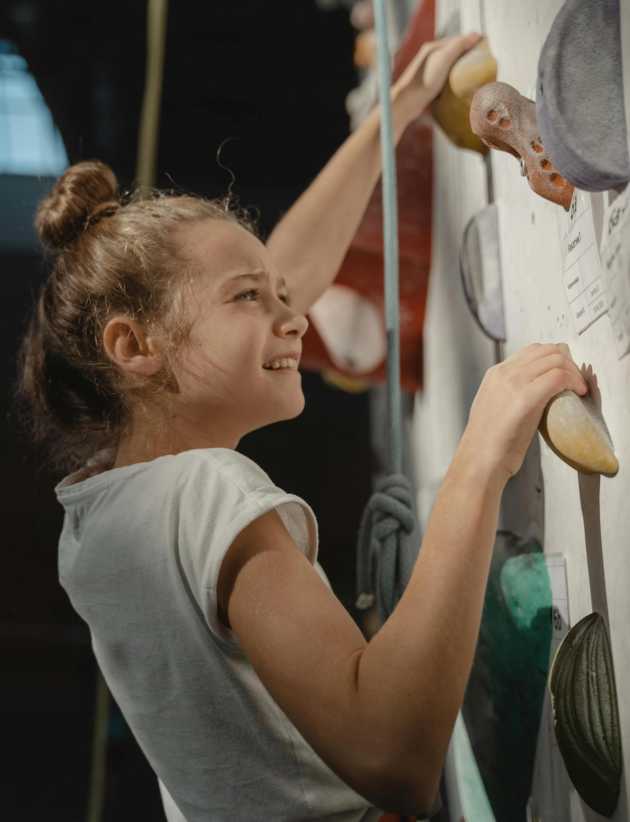The first day of school brings with it big changes from the carefree times of summer. Days that were filled with swimsuits, picnics in the park and cartoons now will be stacked with classroom routines, after-school activities, and homework. With all the upcoming energy and excitement that are sure to be part of a brand new school year, we’ve laid out a few tips to help kids and parents prepare.
Day in, day out
Transition kids to the new school year by starting a new bedtime at least two weeks before school. It also can be helpful to practice the morning routine, particularly if kids will have trouble eating a healthy breakfast.
“A lot of children don’t feel like having breakfast in the morning because they are not used to getting up that early,” explains kindergarten teacher Cathy Kietlinski, who knows a few things about the first day of school — she has brought in a new school year for her students 26 times.
On the first day of school, it’s very important that parents notify their children’s new teachers how they will be getting home the first day and all subsequent days.
“As long as we know where they are supposed to be, we will get them to the right place,” says Kietlinski.
For home preparation, she says it is beneficial for parents to create a space strictly for children’s school items — like backpacks and lunch boxes — so kids can get everything ready to go the night before, including the next day’s clothing.
“It will save a lot of stress on the parents if they have everything prepared.”
Having a set location for school items helps you in the long run.
“Have one spot where your child puts their papers for you to see or their agenda for you to sign, and then you’ll always know to look for it. Little things like that can really help out,” says Patricia Detrich, an 11-year teaching veteran.
The third grade teacher says parents need to help kids learn organization skills.
“Students need a lot of help at the beginning of the year to stay on top of this. Once school starts, kids have materials and folders and books and papers that need to be signed. The kids who are the most successful with that have parents who check their backpack every day or ask them for papers that need to be signed,” she explains.
In addition to organizational concerns, Detrich thinks it is important to prepare kids for some of the social issues they may face.
“One of the most important messages parents can convey is to help your child learn personal responsibility. It is very important for students to learn that they can make decisions for themselves, to do the right thing, to not get involved in certain behaviors they might see, and to not prolong conflicts. I have found that, for some students, it is difficult to take responsibility for their own actions. They want to blame other kids; they try to point fingers.”
Another way to keep kids prepared for school through the summer is to ensure they continue to read.
“Reading needs to be all summer long,” says Detrich. “Kids who don’t read during the summer don’t keep up with certain reading skills — they might be starting out the next grade level a little bit behind their peers. Some parents think it’s time to take a break from reading in the summer, but research shows that kids who read a lot tend to be the best readers,” and, in turn, tend to be the most successful at performance tests. She says kids should read a variety of texts — fiction and non-fiction books and also children’s magazines.
Young ones
Kietlinski says there are certain preparations younger kids — like her kindergarteners — need to make. “Children should practice dressing themselves so they can learn to manage snaps, buttons and zippers,” she says. “Also, they should be able to take care of all their own toileting needs, including washing their hands with soap after they go to the restroom.”
To make things smoother in the cafeteria, children should practice opening the containers or baggies they plan to use in their school lunches.
And Kietlinski says it is good to prepare kids to leave at home any sentimental items they may be used to carrying.
“They may have a cuddly or stuffed animal they like to carry, but the child needs to learn to leave their special toys or cuddlies at home. That can be a really difficult hurdle for some children.” Kietlinski also suggests parents label personal items that will be brought or worn to school, such as lunch kits, backpacks, jackets, and sweaters.
Parents should let the teacher take care of the child’s needs at this point.
“There will occasionally be a few tears at the beginning of a new school year,” she says of young kids. “Parents should give their child a reassuring hug and a kiss, and then they need to leave. Otherwise, the parents’ body language is saying they are worried and unsure about leaving the child in the classroom.”
“Any good teacher is going to contact you immediately if there is a major problem.”
A fresh start
The end of summer is the perfect opportunity for kids to transition themselves to a better year.
“Summer break, I like a clean slate so you can start fresh in the new school year and leave behind the stuff that didn’t really work well for you in the last year. August is always a really cool transition time, when they are gearing up to think about school in a new way and just getting out of the relaxation frame of mind,” says Annie Drake, a licensed marriage and family therapist.
Once kids reach about fourth grade, Drake suggests taking them on an out of town trip in August and asking them, “If there was a rumor about you this year at school, what would you like the rumor to be?”
Keeping in mind rumors can be positive, their answers may range from, “She is really sweet” to “He’s not as geeky as last year” to “She’s so smart or getting such good grades.” Parents then can talk with their kids about how they might achieve this. It can be shedding the glasses, working out a study plan, finding ways to make new friends, or trying a new style of haircut or clothing.
“By taking them out of town, they are able to dream a little bit more, especially if they’ve had a rough year the year before — with kids picking on them or if they had a rough time with grades. They can overcome those limitations when they get that break. Kids can transition to thinking, ‘I can have a new mindset about me.’” She says many times, kids will live up to their expectations.
Extracurriculars
A question many parents and kids face with a new school year is how many sports and extracurricular activities to juggle.
Parents should let kids participate in as many as they can handle — to a certain extent.
“You want them to participate in as many different things as possible. That way they can find out what their interests are and what they are good at — you never know until you try,” suggests Middle School Athletic Coordinator Josh Brevard.
Brevard does feel, however, that kids should be involved in only one activity at a time.
“Where I see kids get in to trouble is if they are involved in three different things at a time.” When they have a full day of school, then football from four to six, followed by a bite to eat, and then soccer from seven to nine, that may be too much, he says.
Instead, activities should be at a level “where the kids do not get burned out on sports and so it doesn’t get too competitive for them.”
“Be careful about pushing your kid too hard. I see a lot of kids who get pushed too hard in junior high and high school so they can get a scholarship, but by the time senior year comes around, they are burned out and no longer want to play,” he cautions.
And sports do more for kids than just get them physically active.
“It’s always my belief that an active kid gets many benefits academically and socially. They’ve shown that sports actually help stimulate the brain, and the kids who are more active tend to make better grades,” the football, basketball, track and tennis coach says.
“Their social interaction with the other kids is huge. A lot of them get discipline, and they learn responsibility. They also learn teamwork, and they learn leadership. That is the main benefit of sports — we try to get them healthy and fit, but also our goal is to mold them to be young men and women who are beneficial to society. If they are active and involved, then they are being healthy, instead of being somewhere and doing something they shouldn’t be.”
Safety
Whether kids are walking to the bus stop or to school or riding a bicycle, one of the most basic safety rules is never to travel alone. There is strength in numbers, even in small kids. Predators look for the lone sheep, the most vulnerable person. Lots of times they will bypass a group of kids to get to one that is walking alone.
While “Stranger Danger” is often used as a catch phrase, it can be better to teach about situations. Try to show kids to be aware of situations and actions that are out of the ordinary. Is it normal for an adult to ask a child for help? No, it’s not. If kids are approached by someone asking for directions, for example, they should go back the opposite way.
It’s also important to teach children to follow their instincts. If something feels uncomfortable or not right, kids should be taught to distance themselves, even if potential danger doesn’t seem physically close. If your child is waiting for the bus and there is a guy waiting on the other side of the street and your child feels uncomfortable, that is enough. That is when the child needs to go home or go somewhere and tell an adult. There is no set distance — the distance is when the child feels uncomfortable. He needs to learn to listen to his inner voice.
Parents, in response, must listen to children’s concerns. If they’ve got a fear about a person, it’s usually legitimate. The instinct is to have natural fear or a natural inclination that something is not right. So many times we don’t pay attention to that or downplay it. We need to cultivate that instinct trust in our children.
With children who stay home alone after school, it is important they be taught to lock the door immediately upon arrival and that it is never okay to open the door or window. Children also should be taught how to use 911 and should know to call from a home phone, rather than a mobile phone. This is because home phones are more likely to automatically show a location when 911 is called.
When kids get sick, a parent or a designated adult will need to pick them up from school. Make sure there are several contacts listed for students, and be sure to keep work, home, and mobile phone numbers updated at the school office.















